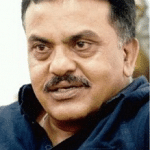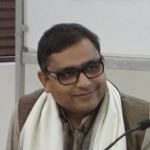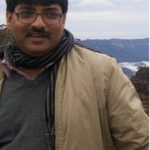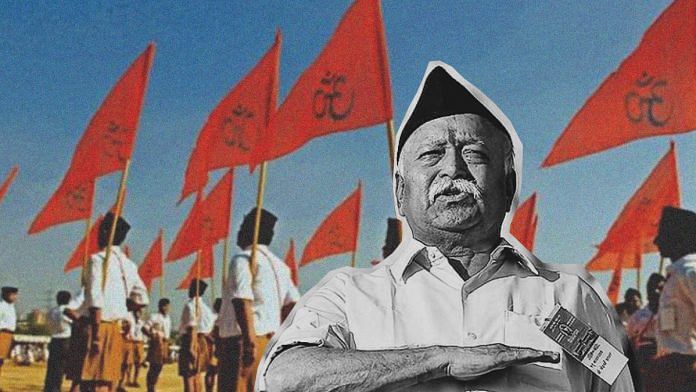In a first-of-its-kind outreach, the Rashtriya Swayamsevak Sangh (RSS) is holding a three-day lecture series in New Delhi in which Sarsanghchalak Mohan Bhagwat will lay out his ideas about “Bharat of Future”. The RSS says it invited all political parties to the event, but Congress has denied receiving any such invite and has declined to attend it.
ThePrint asks: Should opposition skip RSS meet or try to understand Mohan Bhagwat’s vision for India?
We refuse to sit in their court and be a part of their proceedings
 Sanjay Nirupam
Sanjay Nirupam
President, Mumbai Congress committee
Prima facie, it looks like a stunt on the part of the RSS. A stunt of this kind must absolutely be rejected. So, if top opposition leaders have decided to reject the invite, I support their move.
I can see why any opposition leader whose ideology is averse to that of the RSS ideology wouldn’t be willing to attend the event. At the end of the day, it is our ideology that is of the highest importance. What are societies built on? Ideologies.
Some leaders come with a dictatorial ideology, some with that of hate and division, and others with an ideology based on love. Gandhi, Stalin, Marx, Hitler, all came with their distinct ideological positions.
What I am seeing here is a clear clash of ideologies. The RSS ideology is very different from that of the Congress.
Many argue that we should be open to engagement. But we do engage with the BJP on a daily basis in Parliament. We engage with them in a constitutional manner when it comes to issues concerning the country. But why should we have to engage with a divisive ideology like that of the RSS?
They are pushing a vision for a theocratic India, which we completely disagree with. In this vision, only one religion enjoys a monopoly while all others suffer. We are not comfortable with other religious communities feeling insecure in their own country. I refuse to go and sit in their court and be a part of their proceedings.
Opposition would violate spirit of democracy by not listening to Mohan Bhagwat
 Arun Anand
Arun Anand
CEO of Indraprashta Vishwa Samvad Kendra and author of ‘Know About RSS’
In the 93-year-old history of the RSS, there has been no dearth of leaders belonging to various political parties sharing platforms with the functionaries of the RSS.
But the RSS has never flaunted this list as it has largely been a publicity-shy organisation and doesn’t want its supporters in other political parties to be singled out.
There is hardly a political party in the country whose leaders have not interacted with the RSS directly or indirectly through any of the dozens of organisations inspired by it. It is official that leaders like Mahatma Gandhi, Babasaheb Ambedkar, Jai Prakash Narayan have come and witnessed the RSS’ vision in action.
During the 21 darkest months of democracy when the Congress government led by Indira Gandhi imposed the Emergency, the RSS joined its hands with the rest of the opposition parties to fight it out. In fact, jail records show that had it not been for the RSS volunteers who came in waves to fill the jails notwithstanding the brutal repression by Congress administration, the Emergency wouldn’t have faced a challenge.
After the Janata Party won polls in 1977, everyone except RSS and Bharatiya Jana Sangh leaders, wanted to target Indira Gandhi. The RSS chief at the time, Balasaheb Deoras, who was jailed during the Emergency, boldly told all opposition members to ‘forgive and forget’ and that they shouldn’t go for a witch hunt against the Congress leadership and Indira Gandhi.
Thus, the opposition would be making a grave mistake by not listening to the RSS’ vision for India. The organisation wants to unite India and transform society. You may not agree with its vision, but to not even listen to Mohan Bhagwat violates the basic essence of democratic principles.
All must engage with RSS, but the terms of discourse must be clarified
 Hilal Ahmed
Hilal Ahmed
Associate professor, CSDS
The central point of this debate is: is RSS’s idea of India, especially the imagination of Hindutva, acceptable or unacceptable?
Questions of this kind always grow out of the framework of politics that evolved after 1992, especially after the demolition of the Babri Masjid. The political class conveniently divided itself into two groups: the self-claimed secularists and the self-claimed secular nationalists.
The secularists described their opponents as ‘communal’; while the adversaries of secular nationalists were called ‘pseudo-secular’. In this framework, the RSS emerged as a communal organisation, which is supposed to represent the anti-secular political ideology called Hindutva.
Interestingly, no one bothered to explore the meanings of RSS’s Hindutva. As a result, a loosely defined notion of Hindutva survives, which is always used strategically by the RSS leaders including Mohan Bhagwat.
The opposition’s reluctance is actually a reflection of this intellectual laziness. They still think that by painting the BJP/RSS as communal they would be able to save their secular tag. This rhetorical, ‘ready-to-use-answer’ does not require any serious engagement with political ideas and ideologies.
There is another dilemma. According to media reports, the proposed event is organised in a ‘lecture format’. In such a scenario, opposition leaders are invited merely as audience. There is a remote possibility to engage in any serious dialogue with RSS leaders with regard to Hindutva or nationalism. On the contrary, the RSS might be able to use the presence of opposition leaders to gain wider legitimacy.
In any case, the proposed event is an important opportunity to look at the self-perception of the RSS –the so-called cultural organisation, which officially disassociates itself from all political parties including the BJP.
Hence, whosoever is invited by the RSS should attend this meet; however, the terms of engagement must also be clarified publicly.
Also read: RSS first announces its lecture series at Vigyan Bhawan, asks for permission later
Same parties that aligned with RSS’ political wing in the past now call it fascist
 Ashutosh
Ashutosh
Former Aam Aadmi Party leader and author
Let me begin by asking a question: when was the RSS treated as an untouchable? My question might offend many, but I will request them to hold their breath, think a bit and then react?
Fact is the RSS had never been treated as an untouchable by secular parties. If it had been so, the RSS would not have seen such meteoric growth. After Mahatma Gandhi’s assassination, the RSS was like an outcast in Indian society. But it is the politics of opportunism, which made the RSS relevant and gave it the respectability that it badly desired.
It was Ram Manohar Lohia’s flawed concept of “anti-Congressism”, which I think is the reason for the rise of the RSS in India.
In 1960s, the alliance of socialist parties breached the Congress’ fortress for the first time by forming coalition government in nine states. The RSS’s political wing, Jana Sangh, was an important member of this coalition. In 1977, all the opposition parties, including the Jana Sangh, merged their identities and formed the Janata Party.
Similarly, in 1989, in their ambition to dislodge Rajiv Gandhi, the CPM decided to have a working relationship with the BJP, the new political wing of the RSS. Both gave outside support to V.P. Singh’s government.
This was also the time when the RSS was intensifying the Ramjanmabhoomi movement, and the communal temperature in the country was rising. The CPM did not find the RSS communal or dangerous for the country.
Now the same parties call the RSS fascist. My question is: were they blinded by the desire to unseat the Congress or did they fail to understand the true nature of the RSS? I believe it is both.
Therefore, I am little mystified by the chorus raised by the Left and the liberals against the RSS. The RSS today is the government. It is the hegemonic ideology. It has successfully replaced the secular consensus.
If it is the leading force and the leading organisation then, in my opinion, it is not wise to not engage with it. Democracy is all about debate, discussion and engagements. After aligning with it in the past, now it will be hypocritical to treat it untouchable. Opposition should not skip the event and use the platform to spread their idea of India and their future vision like Pranab Mukherjee did.
Many years ago, I was invited by the RSS-supported newspaper Tarun Bharat to be the chief guest in Nagpur. RSS chief Mohan Bhagwat was the guest of honour. We shared the same platform. I articulated my views and he shared his. It was nice knowing each other and understanding each other.
You can contest RSS’ ideas only if you reject the idea of its political ‘untouchability’
 Sangit K. Ragi
Sangit K. Ragi
Professor, Delhi University
Dialogue across the political, social and religious spectrums are central to the healthy functioning of a democracy. Conflicts arise when we define and propagate our understanding as the absolute truth and insulate ourselves against differing opinions. And therefore, if the RSS has invited political parties, social and cultural organisations and people from different walks of life, they all should participate in it. Gandhi worked with many towering leaders of the Hindu Mahasabha including Madan Mohan Malviya despite having differences in opinion. Unfortunately, this culture has fast declined in the country in the last two decades. Most political parties now are undemocratic. They are either personality-led or dynasty driven parties who define their opponents as permanent enemies.
The RSS has been engaging with people across political spectrums and ideologies, which includes Sardar Patel, Jawaharlal Nehru, Jayaprakash Narayan, Ram Manohar Lohia, Indira Gandhi, V.V. Giri, V.K. Krishna Iyer and several such luminaries. It launched several social outreach programmes in the country. So, the current initiative of the RSS continues with the long-cherished tradition of the organisation.
The RSS, along with its 65 ancillary organisations, touch nearly eight crore people on a daily basis. The Rashtra Sevika Samiti, which takes inspiration from the RSS and works in close coordination with the Sangh, is the largest Hindu women’s organisation in the world.
The RSS idea of India is that it is an ancient divine Hindu nation. India cannot remain India if it loses the Hinduness, which defines its peculiarity. This culture is not exclusivist as it has never resorted to homogenisation of ideas, sects and gods. Hindu dharma or Sanatan dharma is, therefore, Manav dharma. This element needs to be strengthened. This is the core idea of the RSS. It can be contested, but that is possible only when you reject political and ideological ‘untouchability’. Political parties must, therefore, engage with the RSS.
RSS stands for specific brand of ideology, you either align with it or you don’t
 Fatima Khan
Fatima Khan
Journalist
The RSS’s decision to hold a three-day ‘lecture series’ to set the vision for the future of India and help attendees understand what the organisation stands for may seem like a noble thought. Except that it isn’t as straightforward as that.
The RSS stands for a very specific brand of ideology. You either align with that school of thought or you don’t, there is hardly any grey area there. There have been conflicting reports on whether Rahul Gandhi was invited to the event. The greater question is: if invited, should he be attending the meet?
Only last month, Rahul had compared the RSS with Egypt’s Muslim Brotherhood. “RSS is trying to change the nature of India. Other parties haven’t tried to capture India’s institutions,” he had said. Without mincing any words, he had also said it was the RSS that was responsible for planting the idea of demonetisation.
It would be awfully incongruous to now try and reconcile a position that is so evidently anti-RSS with one that tries to engage with it. Which brings us to a larger question – in a democracy, is it wise or even ethical to boycott all possibilities of engagement with a certain group, especially when you’re a leading political party’s president?
Choosing to cut off all channels of engagement with the RSS would imply that one refuses to legitimise its ideological existence. On the other hand, many may argue that the RSS ideology is not a secret and several citizens already subscribe to it. Therefore, can engagement be a conduit to challenge the ideology, and perhaps defeat it? Only if done in the right manner.
By Fatima Khan, journalist at ThePrint. You can follow her on twitter @khanthefatima.




1. RSS is making efforts to win over many sections of the society and that is understandable. Those who are serious about their opposition to Hindutva ideology of RSS must find out why it has been able to survive and grow during last 90 years. Merely opposing RSS without doing anything substantial to counter RSS ideology and its aggressive reach-out programmes will be just a futile exercise. 2. It is fashionable these days to be highly critical of PM Mr Narendra Modi or BJP but has such criticism enhanced opposition parties’ credibility? I do not think this is happening. 3. When Shri Pranab Mukherjee, former President of India, gave a speech at RSS function earlier in June, his message was that one may be opposed to RSS ideology but one should not consider RSS as politically untouchable. I think this was the right message. Hence, if political parties wish to defeat RSS/BJP, it would be necessary for them to convince our vast country’s citizen-voters that RSS/BJP must be rejected as they wish to establish a ‘Hindu Rashtra’ and that such a ‘Hindu Rashtra’ is not good for people of India. 4. On its part RSS’ top leaders must accept that democracy is supreme and must be preserved. I also think no good purpose will be achieved by RSS leaders not accepting honest ideological opposition to RSS ideology. It is dangerous to say that those who are opposed to RSS are not nationalists.
If not for the Hollywood movies, children would have never known that the Dinosaurs existed . And Hollywood sells fiction.
Same with R S S. If they are not sold in the media as they are , most people outside of the business of Politics will hardly know ( OR BELIEVE ) that R S S is such a Dinosaur in determining the political outcome or the fate of this nation. To the point of fact less advertisement that some one says “The R S S today is the government.” I am sorry Sir , the government is the same capitalist trade union comprising of all men in the same profession , in the ruling party or those waiting for their turn and share to please in full or in part their masters.
Since I am not part of opposition about whom the discussion is about, I have nothing more to say. I am just amazed to see the power of media. How even these learned people having access to detailed and authentic data can believe in a media created ” HYPE OF R S S’ POWER.”
Only Ashutosh and Fatima has commented logically here. Readers please read their views.Rest like Sanjay Nirupam still commenting here like any politician trying to gain as much mileage as possible with their pseudo-secularism. At least stop this drama after the way 1984Riot was conducted by Congress.
Guftagu band na ho, Baat se baat chale. No harm in a democracy in engaging with all shades of opinion. The effort should be to understand differing ideologies, engage with them, seek mutual accommodation, even change and modification of long held positions that may no longer reflect changed realities. 2. The RSS was founded in 1925, when the freedom movement was well established. The Hindu – Muslim faultline was visible to all. Whether those differences could be contained, managed, harmonised to allow for the emergence of a unified nation to succeed the British Raj is a thought many must have wrestled with. Ultimately Partition happened in 1947, followed by another in 1971. 3. Many of the emotions the RSS arouses, amongst supporters and detractors, are anchored in the place of 170 million Muslims in India. The Constitution leaves no manner of doubt that all citizens have equal status in India, with some special provisions to protect and safeguard the rights of the minorities, their educational institutions. Even common sense suggests that no other vision of the role and status of minorities can be sustained without leading to consternation and chaos. In that sense, the scheme of things spelt out in the Constitution is both principled and pragmatic. 4. The RSS today is a powerful organisation. It is fully immersed in the political and governance processes of India. Its views matter. All shades of political opinion should engage with it on a continuing basis, in a spirit of mutual enquiry and respect.